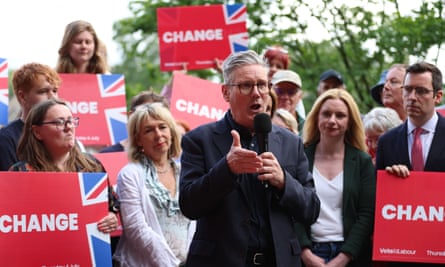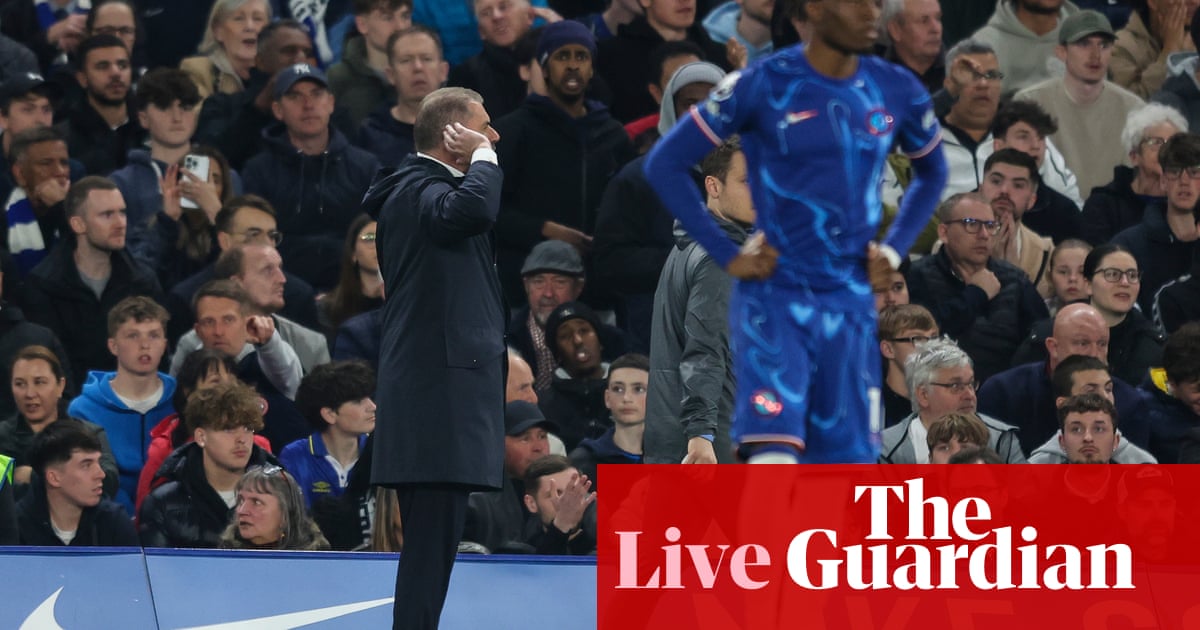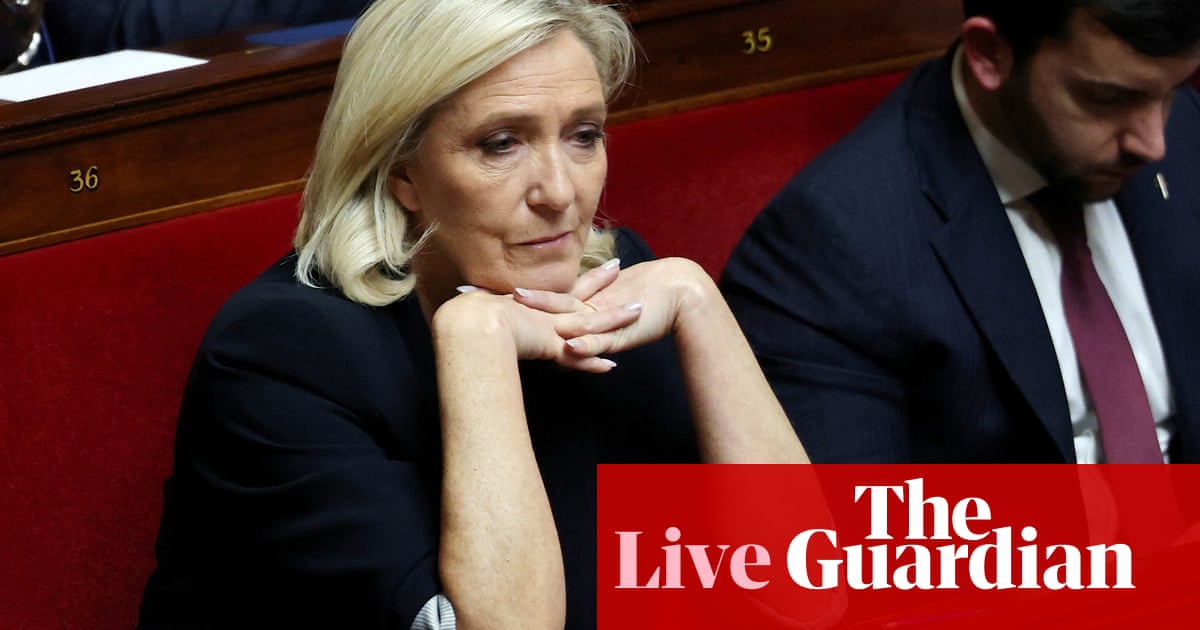Nearly five years after the Brexit divorce, the EU is thinking again about its estranged ex-member across the Channel. The union’s 27 leaders will discuss its relationship with the UK on Thursday, for the first time since the election of Keir Starmer, who wants to reset relations and end the rancour of the Brexit years.
The talks, at an EU summit in Brussels, look set to be brief, forming part of a crowded lunch discussion on EU foreign policy covering issues such as the Middle East, China, Ukraine and the return of Donald Trump.
Nonetheless, the European Council president, António Costa, has squeezed into the agenda: “The question of developing mutually beneficial strategic relations with the United Kingdom – notably in the field of security and defence – while respecting the fundamental principles on which the post-Brexit EU-UK relationship is built” – code for not rewriting existing Brexit red lines.
At an apparently warm meeting in Downing Street last week, Starmer accepted Costa’s invitation to a retreat of EU leaders on 3 February to discuss defence and security. A senior EU official said there was “strong potential” for an EU-UK defence agreement and that the February gathering would be a moment to assess whether the two sides can move forward. Following that is the first EU-UK summit, expected in March or April, a symbolic breakthrough that may be the start of further talks.
Despite the positive mood, there are clouds on the horizon.

The European Commission announced this week that it was taking the UK to the European court of justice, in two separate cases. First, the commission alleged failure to protect the rights of EU citizens living in the UK. The commission said there had been a breach of EU law on free movement of people at the end of 2020, but that similar complaints went back nearly a decade earlier. In a second case, the commission has accused the UK of failing to cancel bilateral investment treaties with six EU member states. Such treaties are seen as illegal, because they overlap and conflict with the EU’s own rules on foreign investment.
As well as the unfinished business of the past, the EU looks set to drive a hard bargain over the future. A leaked internal EU document states that the reset “is only credible” if based on maintaining the status quo on EU fishing rights in British waters beyond June 2026 when current arrangements expire. An “early understanding” on fisheries “is needed for the facilitation of discussions on the other aspects under consideration”, states the internal document seen by the Guardian.
Meanwhile, there is limited room to make economically tangible improvements to the trading relationship, given red lines on both sides.
On the eve of his election victory the prime minister ruled out rejoining the EU or its single market and customs union in his lifetime. Starmer and his ministers have repeated variants of this pledge ever since, although this has not kept at bay headlines claiming the government is assembling “a surrender squad” of Whitehall officials to “permanently lash the UK to an EU superstate”.
The reality is a universe away. The government’s ambitions are viewed by experts as modest: a veterinary agreement, easier access for touring artists to the EU and mutual recognition of qualifications for professionals. Researchers say this agenda is “tinkering around the edges” and unlikely to have much impact on economic growth.
Even those modest ambitions will be difficult to agree. Making it easier for musicians to play gigs in Amsterdam or Berlin might seem straightforward, but work permits and customs declarations for instruments quickly run into EU sensitivities over its economic area.
after newsletter promotion
Similarly, before the election, the chancellor, Rachel Reeves, suggested a “bespoke” arrangement for the chemicals industry. But the EU has ruled out special treatment for any sector when a country is outside its single market.
And the reset could sour over the apparently feelgood proposal of youth exchange. The EU wants a “youth experience scheme” that would give 18- to 30-year-olds in the UK and Europe reciprocal rights to study, live and work abroad for a few years. The scheme, known as YES, is strongly supported by EU countries. The UK has given a firm no. Asked about it, Starmer told the Sun this week that “there are no plans for free movement on any level”. EU officials are deeply irritated by the characterisation of the scheme as “free movement” as it would be time- and age-limited.
While Starmer has been more open in his remarks about cultural exchange to EU leaders, the UK strongly opposes EU demands on the scheme to waive the NHS surcharge for foreigners and allow EU students to pay tuition fees at subsidised domestic rates. The scheme is also seen as unhelpful for a government that has pledged to reduce net migration, which hit an all-time high of 906,000 under the previous Conservative government.
One former senior EU trade official has warned that failure to launch negotiations on youth mobility “may derail negotiations on the trade agenda”. In a paper for the Brussels thinktank Bruegel, Ignacio García Bercero said it was was “urgent and essential” for both sides to “test respective flexibility” in this area.
So far, none of these issues – foreign policy, fishing rights or youth exchanges – has had serious input from EU leaders. Officials acknowledge “a need for a political steer and oversight”. That moment will have to arrive if the reset ever gets off the ground.

.png) 3 months ago
28
3 months ago
28













































